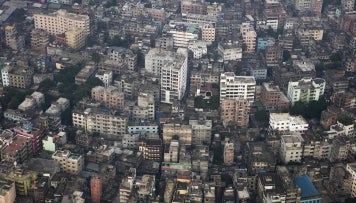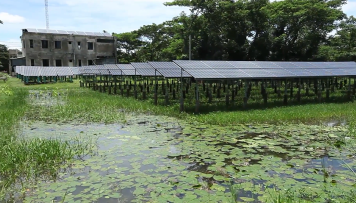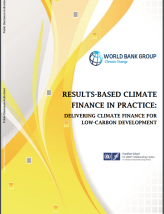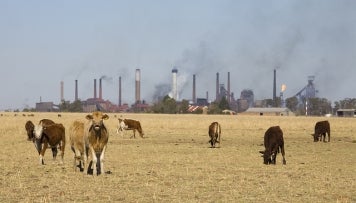
Photo: Dominic Chavez / World Bank
Future growth and climate-resilient development requires action at the city level. It also requires new ways for financing infrastructure in less-developed urban communities.
A record-breaking number of people live in cities, making them economic powerhouses accounting for some 75 percent of global economic output, while emitting over 70 percent of global carbon emissions.
The importance of cities will only grow. By 2050, the global urban population will exceed 6.7 billion; 80 percent of this growth will take place in low- and middle-income countries, predominantly in Asia and Africa.
Climate change with shocking temperatures and extreme weather pose significant challenges to cities’ critical infrastructure—such as transport networks, waterways, and electricity grids, all of which are essential to economic activity and development. City dwellers—such as the one in three urban residents who live in slums in developing countries—are set to be hit hardest.
But despite cities’ commitment to climate-smart growth, the sheer scale of the challenge subdues local budgets and many cities lack the institutional capacity and creditworthiness to fund the infrastructure needed.
The classic model of infrastructure financing that depends on aid without accountability and misses progress in the policy agenda towards creditworthiness is inadequate to address the challenges that lie ahead for cities. Therefore, finding new approaches to incentivize public and private investments is essential.
A new report by GPRBA aims to catalyze this dialogue with city officials and development partners by:
- Setting for the first time a framework for results-based and blended finance schemes for climate investments in cities;
- Presenting a toolbox analysis of financial instruments that have not been-tested or mainstreamed in development finance operations in cities; and
- Signaling the opportunity for partnerships in developing results-based financing solutions that deliver results with accountability for public institutions, service providers and financiers.
This report offers innovative ideas for cities and development partners to use their limited public funds and direct policy decisions to leverage private sector investments. The analysis shows how selected results-based instruments can help overcome investment barriers and make low-carbon and resilient infrastructure a bankable asset class for local and international investors.
Improving capital raising through increased creditworthiness, providing financial incentives to develop a pipeline of bankable projects, and deploying capital most effectively through results-based approaches will be key.
The report brings together experiences from investments in energy efficiency through auction facilities and specialized energy services companies, utilities that developed environmental impact bond schemes and pay-for-success schemes in municipal solid waste management such as the one developed by GPRBA in Nepal.
Without bold, innovative results-based financing approaches in cities that blend public and private funding we’ll not be able to deliver climate resilient and inclusive growth.
See also:
Changing our Name, Expanding our Mission
Publication: "New Perspectives on Results-Based Blended Finance for Cities: Innovative Finance Solutions for Climate-Smart Infrastructure"









